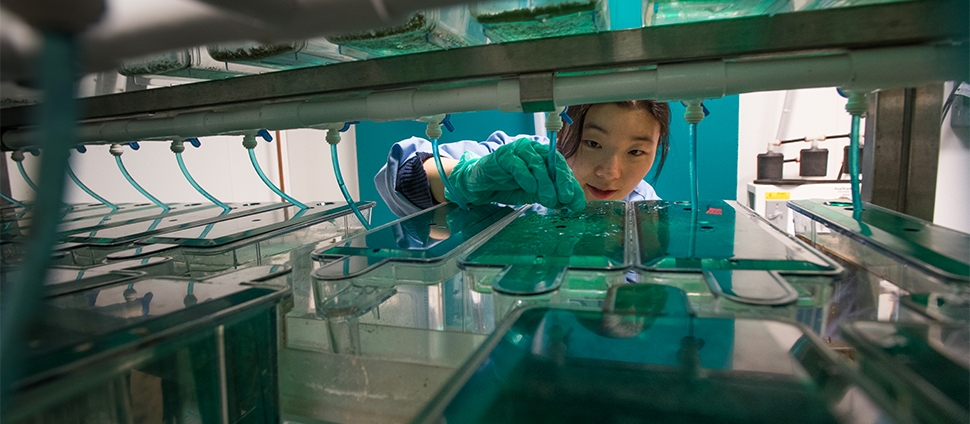Document Type
Article
Publication Date
9-1-2020
Publication Title
American Journal of Tropical Medicine and Hygiene
Abstract
Though bulk stool remains the gold standard specimen type for enteropathogen diagnosis, rectal swabs may offer comparable sensitivity with greater ease of collection for select pathogens. This study sought to evaluate the validity and reproducibility of rectal swabs as a sample collection method for the molecular diagnosis of Giardia duodenalis. Paired rectal swab and bulk stool samples were collected from 86 children ages 0–4 years living in southwest Niger, with duplicate samples collected among a subset of 50 children. Infection was detected using a previously validated real-time PCR diagnostic targeting the small subunit ribosomal RNA gene. Giardia duodenalis was detected in 65.5% (55/84) of bulk stool samples and 44.0% (37/84) of swab samples. The kappa evaluating test agreement was 0.81 (95% CI: 0.54–1.00) among duplicate stool samples (N = 49) and 0.75 (95% CI: 0.47–1.00) among duplicate rectal swabs (N = 48). Diagnostic sensitivity was 93% (95% CI: 84–98) by bulk stool and 63% (95% CI: 49–75) by rectal swabs. When restricting to the lowest three quartiles of bulk stool quantitation cycle values (an indication of relatively high parasite load), sensitivity by rectal swabs increased to 78.0% (95% CI: 64–89, P < 0.0001). These findings suggest that rectal swabs provide less sensitive and reproducible results than bulk stool for the real-time PCR diagnosis of G. duodenalis. However, their fair sensitivity for higher parasite loads suggests that swabs may be a useful tool for detecting higher burden infections when stool collection is excessively expensive or logistically challenging.
Volume
103
Issue
3
First Page
1276
Last Page
1282
DOI
10.4269/ajtmh.19-0909
ISSN
00029637
Creative Commons License

This work is licensed under a Creative Commons Attribution 4.0 International License.
Rights
Licensed to Smith College and distributed CC-BY under the Smith College Faculty Open Access Policy
Version
Author's Accepted Manuscript
Recommended Citation
Maasch, Jacqueline R.M.A.; Arzika, Ahmed M.; Cook, Catherine; Lebas, Elodie; Pilotte, Nils; Grant, Jessica R.; Williams, Steven A.; Keenan, Jeremy D.; Lietman, Thomas M.; and Aiemjoy, Kristen, "Rectal Swabs as an Alternative Sample Collection Method to Bulk Stool for the Real-Time PCR Detection of Giardia duodenalis" (2020). Biological Sciences: Faculty Publications, Smith College, Northampton, MA.
https://scholarworks.smith.edu/bio_facpubs/151


